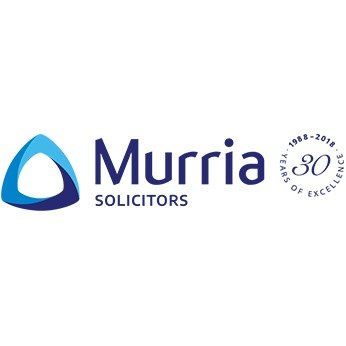Best Antitrust Litigation Lawyers in Birmingham
Share your needs with us, get contacted by law firms.
Free. Takes 2 min.
List of the best lawyers in Birmingham, United Kingdom
About Antitrust Litigation Law in Birmingham, United Kingdom
Antitrust litigation in Birmingham, United Kingdom, deals with enforcing competition laws and ensuring that markets operate fairly and competitively. The main objective of antitrust law is to prevent businesses from engaging in anti-competitive practices such as price fixing, abuse of dominance, or unfair mergers. Both UK and European Union legislation have shaped the framework for antitrust law that is enforced at both the national level and within the city of Birmingham. Businesses and individuals in Birmingham must comply with the Competition Act 1998, the Enterprise Act 2002, and, where appropriate, the retained provisions of EU competition law. If there is a suspicion that these laws have been breached, disputes may result in complex litigation within the courts or before competition authorities.
Why You May Need a Lawyer
Antitrust litigation can be intricate, often involving substantial financial stakes and significant commercial implications. You might need a lawyer in situations such as:
- Being investigated for participation in a cartel or anti-competitive agreement
- Facing allegations of abuse of a dominant market position
- Challenging or defending against mergers or acquisitions being scrutinized for competition concerns
- Seeking damages due to anti-competitive behavior from another business
- Receiving formal requests or dawn raids from the Competition and Markets Authority (CMA)
- Defending your business in civil or criminal proceedings related to competition law breaches
- Needing compliance advice to avoid inadvertent breaches of antitrust laws
Local Laws Overview
In Birmingham, antitrust or competition law is primarily governed by national UK statutes and regulations, including the Competition Act 1998 and the Enterprise Act 2002. Key points include:
- The Competition and Markets Authority (CMA) is responsible for investigating and enforcing competition law
- Chapter I of the Competition Act 1998 prohibits anti-competitive agreements, such as cartels and price-fixing
- Chapter II addresses abuse of dominant position in any market in the UK
- Under the Enterprise Act 2002, the CMA can investigate mergers and impose remedies if competition may be substantially lessened
- Businesses found in violation may face fines, damages claims, and, in severe cases, criminal prosecution of individuals
- Private parties harmed by anti-competitive practices can bring claims before courts for compensation
- Both individual and class action lawsuits are possible under UK legislation
While the UK has left the European Union, certain principles and elements of EU competition law may still have relevance, especially in cross-border matters.
Frequently Asked Questions
What is antitrust litigation?
Antitrust litigation refers to legal disputes where companies or individuals are alleged to have engaged in practices that restrict competition, such as price fixing, market sharing, or abuse of dominant position. It can involve both government actions and private lawsuits.
Who enforces antitrust laws in Birmingham?
Antitrust laws in Birmingham are enforced mainly by the Competition and Markets Authority (CMA) and, in some cases, by sector regulators such as Ofcom, Ofgem, or the Financial Conduct Authority, depending on the industry.
Can individuals file a lawsuit against a company for anti-competitive behavior?
Yes, individuals or businesses who have suffered loss due to anti-competitive practices can bring a claim for damages in the civil courts, including collective (class) actions.
What are common types of anti-competitive behavior?
Common anti-competitive behavior includes price fixing, bid rigging, market sharing, exclusive supply or purchase agreements, and abuse of market dominance such as predatory pricing or unfairly limiting supply.
Are there criminal penalties for breaching antitrust laws?
Yes, individuals involved in cartel activity may face criminal prosecution, which can lead to imprisonment and substantial fines. Companies can also face significant financial penalties.
How can a business avoid breaching antitrust laws?
Businesses should implement robust compliance programs, train staff on competition law, regularly review commercial agreements, and seek legal advice when unsure about the legality of business practices.
What happens during a competition investigation?
The CMA or relevant authority may conduct dawn raids, request documents, interview staff, and gather other evidence. The investigation can lead to findings of infringement, financial penalties, and orders to change business practices.
Is there a time limit for bringing antitrust claims?
Yes, there are statutory limitation periods for bringing civil antitrust claims. These vary depending on the type of claim, but generally, claimants have six years from the date the cause of action arose.
Can international companies be sued for antitrust violations in Birmingham?
Yes, if their conduct affects markets or competition in the UK, including Birmingham, international companies can be subject to UK antitrust law and litigation.
What should I do if I am contacted by the CMA or suspect a dawn raid?
Immediately seek legal advice from a competition law specialist. Do not destroy documents or attempt to impede the investigation, as this can result in further legal penalties.
Additional Resources
If you are seeking further information or support regarding antitrust litigation in Birmingham, consider reaching out to the following resources:
- Competition and Markets Authority (CMA): The principal UK competition regulator
- Citizens Advice Bureau: Initial legal advice for individuals and small businesses
- The Law Society: Directory to find solicitors specializing in competition law
- Chambers and legal networks in Birmingham: Sources for local legal expertise
- Local business support organizations, such as the Birmingham Chamber of Commerce
Next Steps
If you believe you may be involved in an antitrust issue, or you are considering litigation, it is important to act promptly. Follow these steps for the best outcomes:
- Document any evidence you have of anti-competitive behavior or legal concerns
- Contact a law firm in Birmingham with specialist experience in antitrust or competition law
- Arrange an initial consultation to understand your rights, obligations, and options
- Follow legal advice on any immediate steps to preserve evidence and protect your position
- If contacted by authorities, cooperate as required but ensure you have legal representation before making statements or producing documents
- Consider alternative dispute resolution options where appropriate to resolve matters more efficiently
Remember, early legal advice is crucial. Antitrust litigation is a highly specialized area, and the right guidance can help protect you or your business from costly mistakes or legal penalties.
Lawzana helps you find the best lawyers and law firms in Birmingham through a curated and pre-screened list of qualified legal professionals. Our platform offers rankings and detailed profiles of attorneys and law firms, allowing you to compare based on practice areas, including Antitrust Litigation, experience, and client feedback.
Each profile includes a description of the firm's areas of practice, client reviews, team members and partners, year of establishment, spoken languages, office locations, contact information, social media presence, and any published articles or resources. Most firms on our platform speak English and are experienced in both local and international legal matters.
Get a quote from top-rated law firms in Birmingham, United Kingdom — quickly, securely, and without unnecessary hassle.
Disclaimer:
The information provided on this page is for general informational purposes only and does not constitute legal advice. While we strive to ensure the accuracy and relevance of the content, legal information may change over time, and interpretations of the law can vary. You should always consult with a qualified legal professional for advice specific to your situation.
We disclaim all liability for actions taken or not taken based on the content of this page. If you believe any information is incorrect or outdated, please contact us, and we will review and update it where appropriate.














